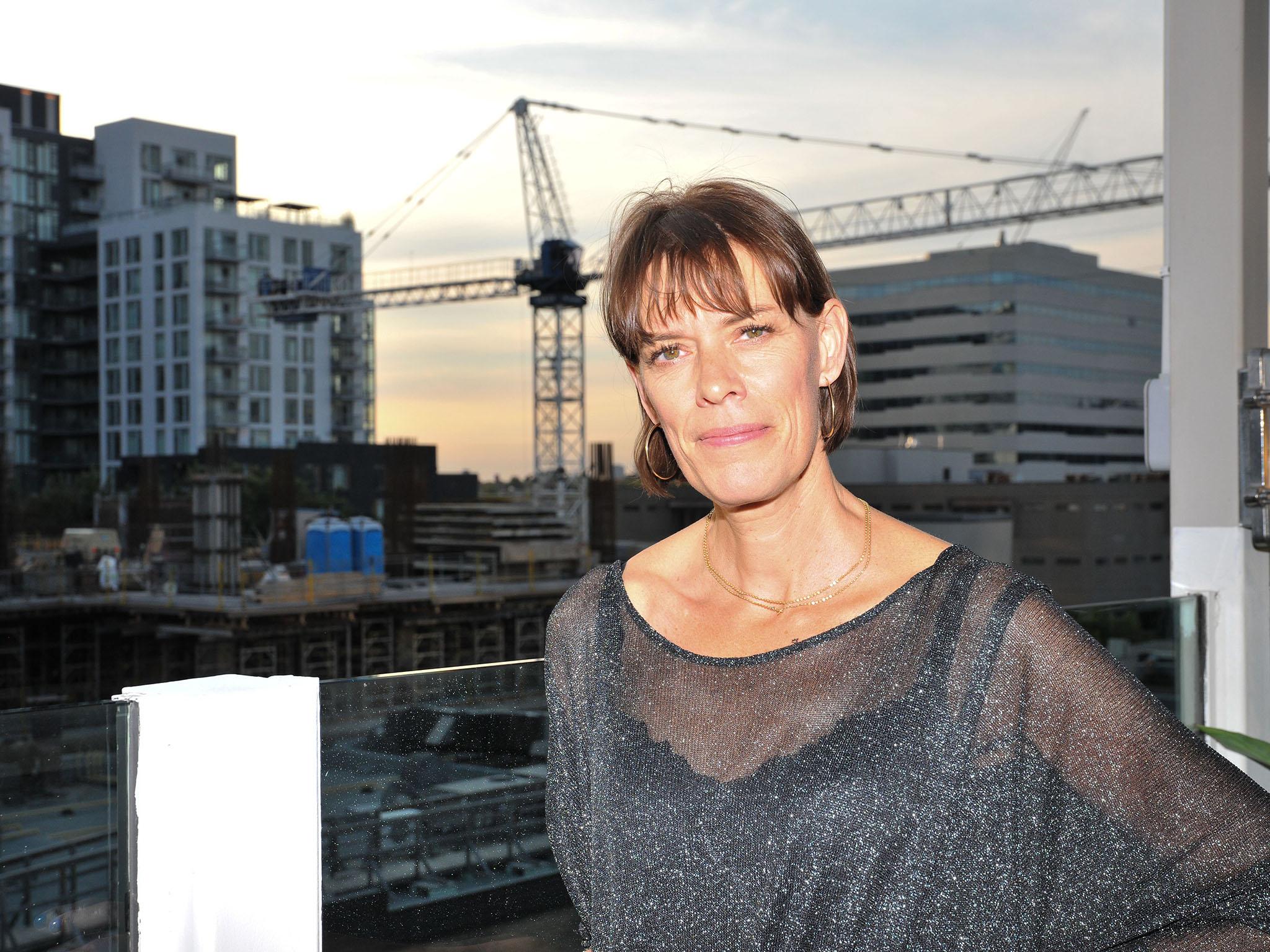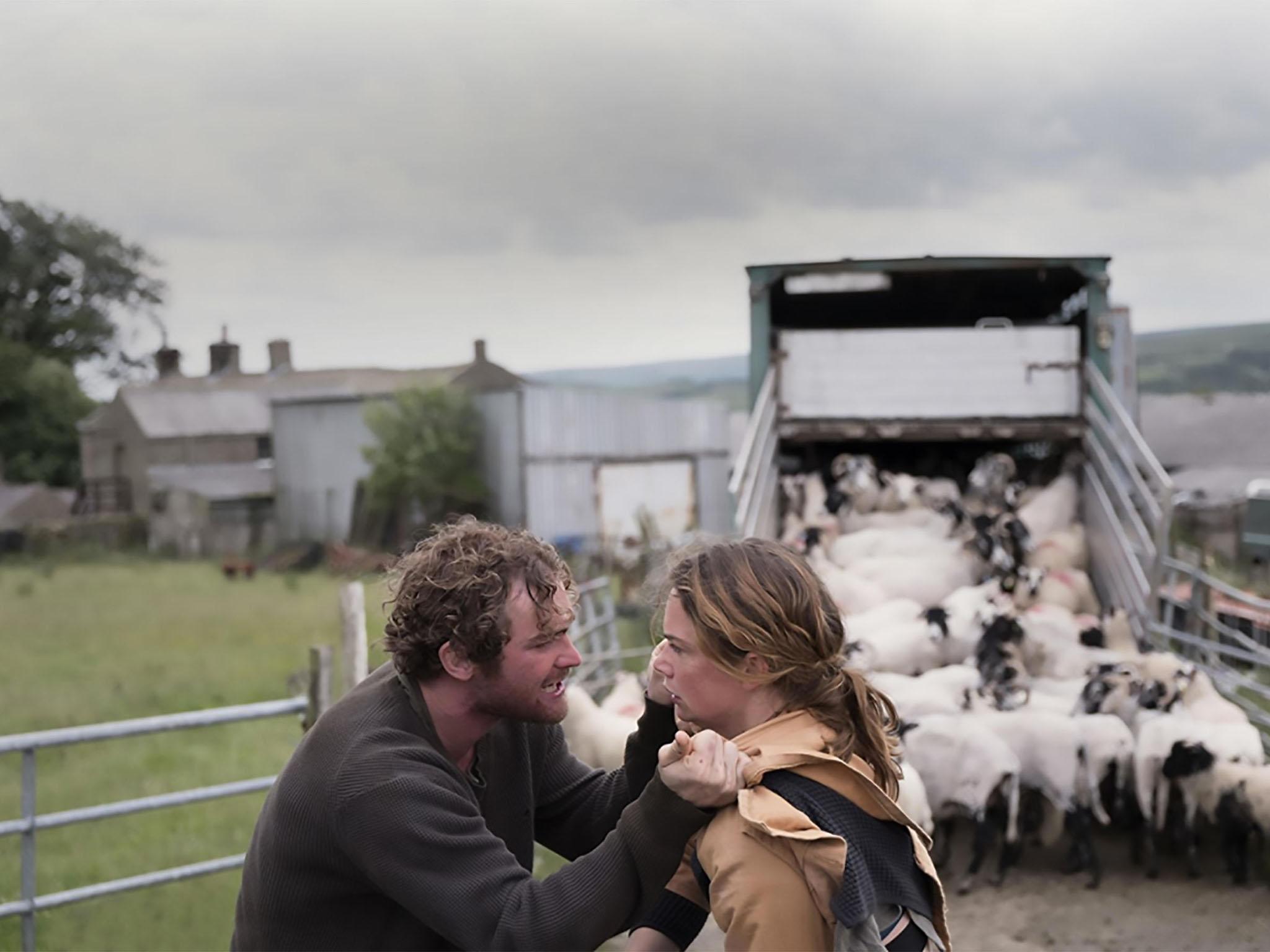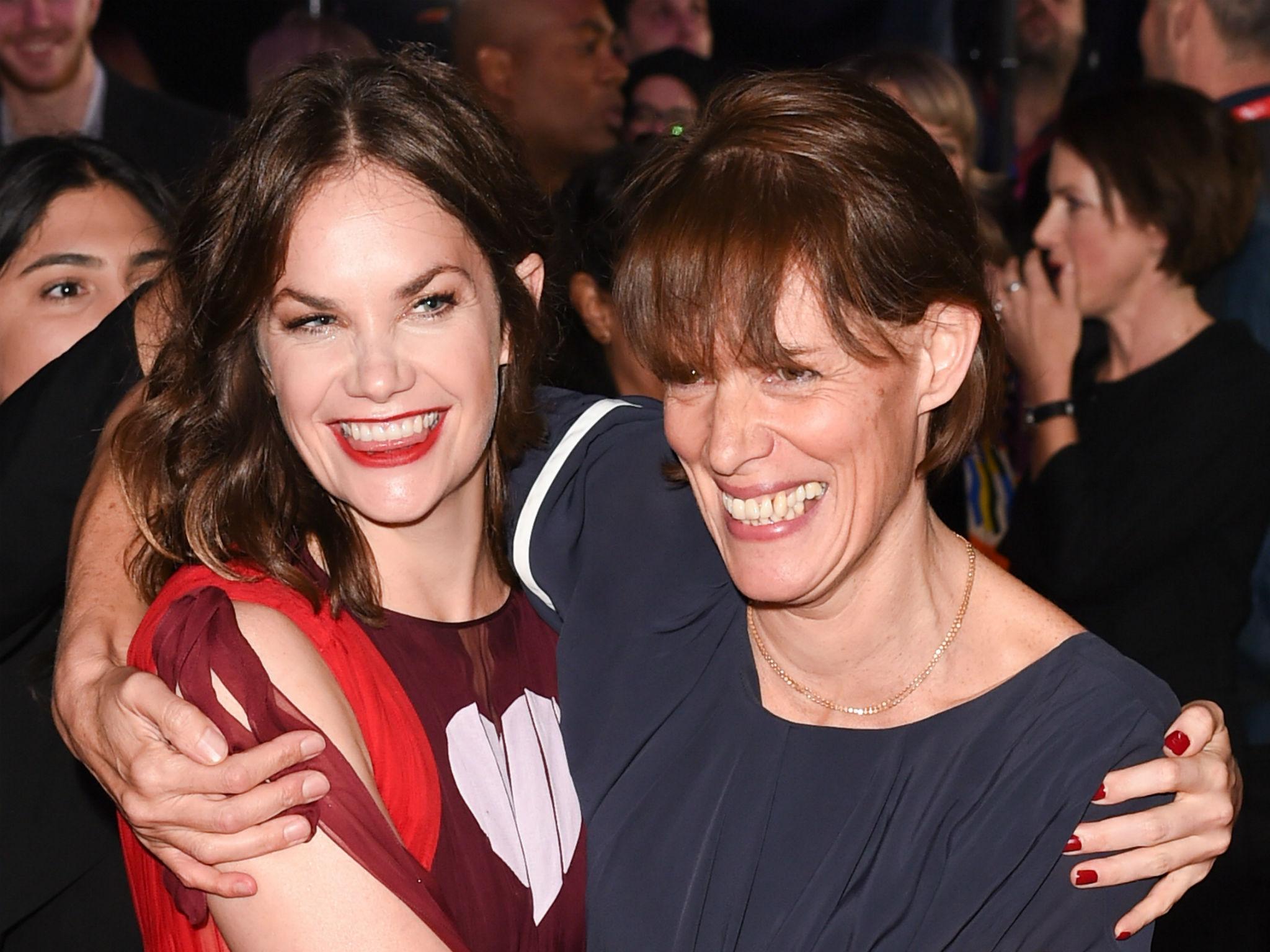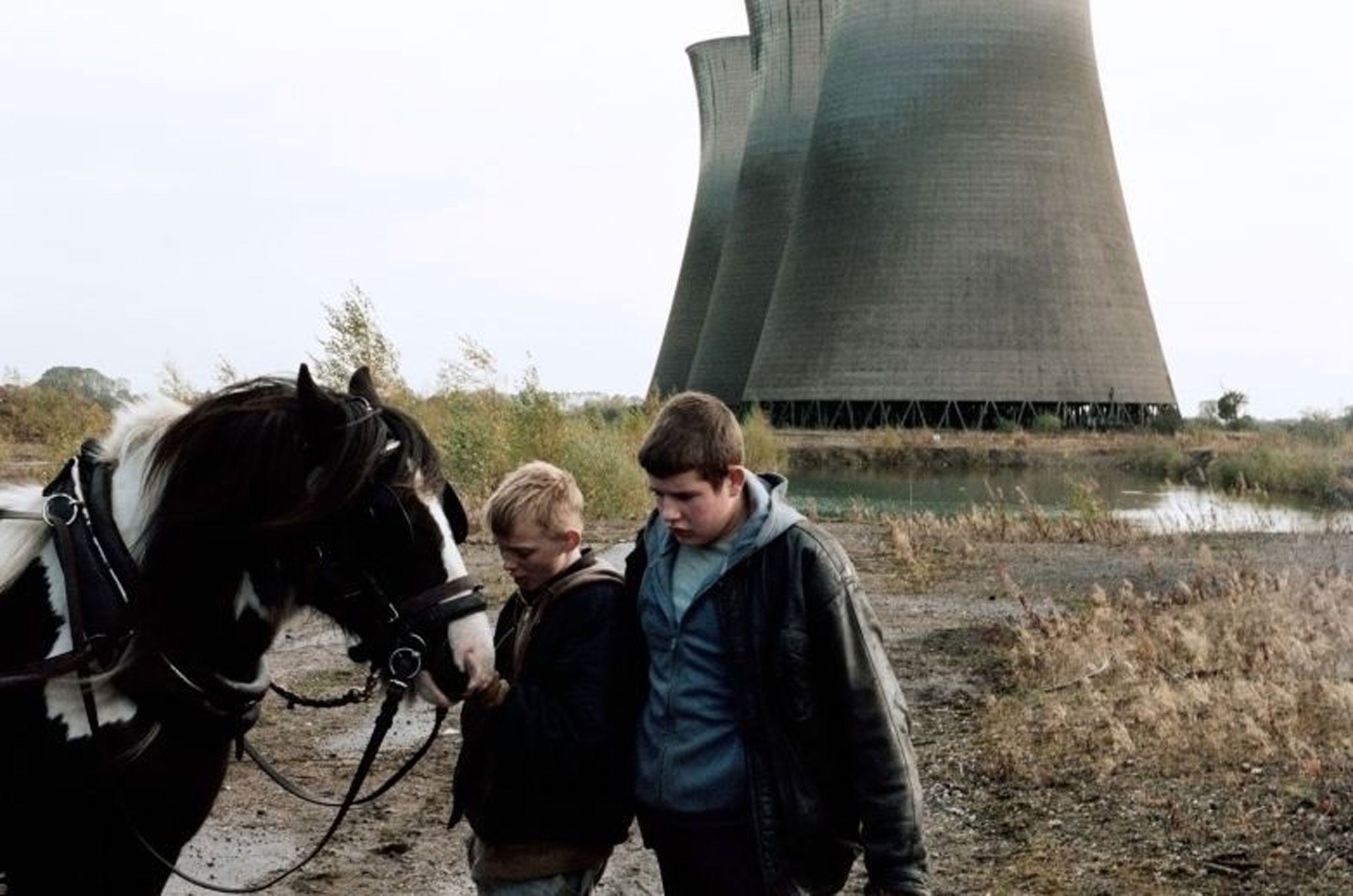Clio Barnard interview: The Dark River director hailed as one of British cinema's most significant voices
The Bafta-nominated writer-director talks to The Independent about the responsibility she feels being deemed one of cinema's most relevant female filmmakers, her struggles directing abuse drama ‘Dark River’ and why she won't be making a ‘Wonder Woman’-sized blockbuster anytime soon

Your support helps us to tell the story
From reproductive rights to climate change to Big Tech, The Independent is on the ground when the story is developing. Whether it's investigating the financials of Elon Musk's pro-Trump PAC or producing our latest documentary, 'The A Word', which shines a light on the American women fighting for reproductive rights, we know how important it is to parse out the facts from the messaging.
At such a critical moment in US history, we need reporters on the ground. Your donation allows us to keep sending journalists to speak to both sides of the story.
The Independent is trusted by Americans across the entire political spectrum. And unlike many other quality news outlets, we choose not to lock Americans out of our reporting and analysis with paywalls. We believe quality journalism should be available to everyone, paid for by those who can afford it.
Your support makes all the difference.Clio Barnard makes an excellent university seminar leader but an even better writer-director, a sentiment backed up by the fact that this writer has experienced both.
Less than a decade ago, Barnard would sit in front of dozens of students teaching BA practical film courses at the University of Kent, reeling off the names of filmmakers she believed to be leading forces in cinema: Lynne Ramsay, Andrea Arnold, Debra Granik, et al.
In a few short years, Barnard herself would become worthy of adding to that very list, her status as one of the most relevant female directors and significant voices of British cinema cemented following feature films The Arbor and The Selfish Giant.
Barnard’s background lay in visual arts and experimental theatre and three short films later – including Random Acts of Intimacy, a film about brief moments of contact and sexual closeness, and the William Blake-inspired Lambeth Marsh – she completed work on an “audio-screenplay” portraying the late Bradford playwright Andrea Dunbar.
The result was The Arbor, a film which – after being granted a cinema release - saw Barnard earn critical acclaim and a Bafta nomination for Outstanding Debut by a British Writer, Director or Producer (she lost to Four Lions’s Chris Morris).
The year she taught me, 2011, she set to work on The Selfish Giant, a drama inspired by an Oscar Wilde short story following two teenage boys growing up in a rundown area of northern England. It was this project which forced her to temporarily step down from her university duties. “I found I couldn’t finish writing and teach at the same time,” she says. “It must have been after your year I had to stop.” The completed feature took Barnard from lecture theatre to the Cannes Film Festival where it became one of 14 films worldwide to screen as part of the Director’s Fortnight section.
Barnard’s latest, Dark River, began life as an adaptation of 2010 Rose Tremain novel Trespass before evolving into the latest in a line of films set in rural Britain (see also: The Levelling, God’s Own Country). While the final product may be the bastion of social-realism we’ve grown accustomed to when Barnard is concerned, it finds itself separated from the others due to the strained central relationship of wayward siblings Alice and Joe (played by Ruth Wilson and Mark Stanley) whose contempt for one another is fired up in the wake of their father’s death.
“In the novel, there are two sets of adult siblings and I was particularly interested in the ones who were on this farm, who were falling apart,” Barnard explains. “Both of them are desperate to connect with each other but are unable to [which] is what really interested me. The brother’s very chaotic, he drinks too much and is aggressive but she is very compassionate towards him because she understands he’s carrying this burden of guilt that doesn’t really belong to him and has kind of destroyed him.“
It’s this “burden of guilt” that presented Barnard with her chief struggle when making Dark River – its subject matter: Alice is a survivor who suffered physical abuse at the hands of her late father. Her past experience is depicted on screen through flashes of effectively executed intrusive memories, the outcome of which Barnard clearly debated with (for the film, she received an annually awarded grant from Biomedical charity the Wellcome Trust, which funded her research into traumatic memory). This battle may have deterred most filmmakers, but not Clio (pronounced: Cly-o).

Watch Apple TV+ free for 7 days
New subscribers only. £8.99/mo. after free trial. Plan auto-renews until cancelled

Watch Apple TV+ free for 7 days
New subscribers only. £8.99/mo. after free trial. Plan auto-renews until cancelled

“The thing I knew was going to be difficult was the intrusive memories,” she admits. “In the novel, you have access to people’s internal worlds so you can jump around in time [but] in film, you don’t have that – it’s image, sound, action. So that proved to be a challenge all the way through. We found in the cutting room that the more we ripped out the stronger it became. So we just kept stripping it back, stripping it back, stripping it back – and possibly we didn’t strip it back enough. I’m still not sure.”
She pauses, considering her uncertainty. “It becomes difficult to see because a tiny little change would make a really big difference.”
Barnard’s own words are corroborated by one-half of her leading duo, Luther star Wilson: “[Clio] really battles in her mind with what she wants to put onscreen – it’s not an easy process for her but that’s why she’s an artist, searching for the truth.”
It was Wilson, alongside co-star Stanley, who alleviated the burden somewhat, affording Barnard the opportunity to collaborate with actors in a way she had yet to.
“I really love working with actors and that’s something that’s grown over the three films. All of my attention was on the two kids with The Selfish Giant, and making sure I could get the performances from them; they needed a lot more from me. Whereas Ruth and Mark were making decisions about the characters I knew nothing about which was wonderful,” she adds through a smile – perhaps the film industry’s warmest. “The three of us together could bring these two people to life.”

The marriage of the above makes for a deeply challenging almost dialogue-free film, which isn’t so much enjoyed as admired – something resembling several films from the directors that inspired her: Alan Clarke, Pier Paolo Passolini and new German cinema pioneer Rainer Werner Fassbinder, to name but a few.
It was a tenure at arts school in Newcastle which sparked Barnard’s love of film, particularly those directed by Andrei Tarkovsky as well something altogether more unexpected: the brain of a certain Rolling Stone.
“There used to be amazing films on TV in the middle of the night. I remember seeing the Nic Roeg film Performance (1970) when I was really young – perhaps too young. It had a massive impact on me. There’s a shot where you go inside Mick Jagger’s head and it was mind-blowing – I didn’t understand that’s what cinema could be up until that point.”
Barnard’s neorealist depictions of British communities have drawn comparisons to Ken Loach with The Selfish Giant deemed the 21st century’s answer to Kes. This notion is echoed by Wilson who brands her a “social realist” and speaks about Barnard with a fervour seemingly reserved for this director alone.

The adoration heaped upon the amiable Barnard by critics and actors is not lost on her but thankfully, her directorial instincts keep her feet screwed firmly to the ground.
“I suppose in some ways you have to try not to think about that and not worry about expectations because that’s quite scary. I have an impulse to tell stories in certain ways and I guess I have to follow that and not worry about how it relates to my previous films. I’m sure there is a relationship between the three but I don’t feel like I ought to be trying to make it that you understand it retrospectively.”
Just don’t go expecting her to make a Patty Jenkins-style jump to Wonder Woman-sized blockbusters anytime soon.
“I don’t know that that would be my strength,” she laughs, needlessly justifying herself. “It’s not really – I don’t know if ‘taste’ is the right word. It’s more about what I believe in. But never say never.”
For now, Barnard – while attending several Q&As up and down the country for Dark River – is back at the University of Kent where she hosts workshops and assists research students. Then there’s the small case of that new screenplay she’s developing, early details of which are still unclear in her own mind.
“I’ve started something else,” she confirms. “There’s this lovely bit at the beginning where you’re feeling really inspired and anything goes – you can throw anything in. That bit is thrilling. Then there’s a lot of hard graft, self-doubt and blind alleys. I say that of everything I’ve made: you start off with this inspiration, you get the idea down and you can see the whole thing. Then you go exploring – you go here, you go there – and somehow you end up coming back to the same place.”
She grins. “Well, hopefully.”
‘Dark River’ is released in cinemas 23 February
Follow Independent Culture on Facebook
Join our commenting forum
Join thought-provoking conversations, follow other Independent readers and see their replies
Comments